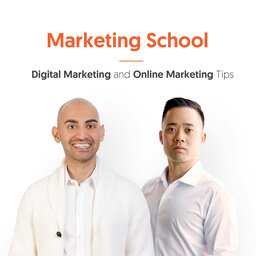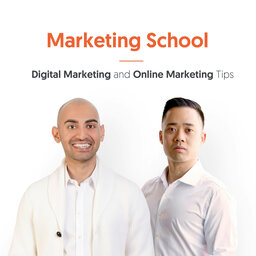How Google and Meta Are Using AI To Make Ads Easier For You
In episode #2636, We discuss how Google and Meta are using AI to make advertising easier and more effective. We highlight features such as Performance Max and Advantage Plus that automate campaigns and optimize ads for better ROI. We also mention responsive search ads and the use of AI to create unique images and headlines. We underscore the importance of embracing AI in marketing, to stay ahead in the industry.
Don’t forget to help us grow by subscribing and liking on YouTube!
Check out more of Eric’s content (Leveling UP YT) and Neil’s videos (Neil Patel YT)
TIME-STAMPED SHOW NOTES:
- (00:00) Today’s topic: How Google and Meta Are Using AI To Make Ads Easier For You
- (00:21) Performance Max and Advantage Plus as AI-driven ad campaigns
- (01:31) Google's AI tools for generating image variations and improving ad performance
- (02:00) The shift from manual optimization to letting machines learn
- (03:22) Google's focus on unique images and headlines
- (04:02) The importance of standing out and avoiding duplication
- (04:55) The incentives of Google and Meta to improve AI features
- (05:25) The need to embrace AI for future marketing success
- (05:40) Meta's image expansion and text variations
- (05:41) That’s it for today! Don’t forget to rate, review, and subscribe!
Go to https://www.marketingschool.io to learn more!
Links Mentioned in Today’s Episode:
Leave Some Feedback:
- What should we talk about next? Please let us know in the comments below
- Did you enjoy this episode? If so, please leave a short review.
Connect with Us:
- Single Grain << Eric’s ad agency
- NP Digital << Neil’s ad agency
- X @neilpatel
- X @ericosiu
Marketing School - Digital Marketing and Online Marketing Tips
Neil Patel and Eric Siu bring you daily ACTIONABLE digital marketing lessons that they've learned th…Social links
Follow podcast
Recent clips

Mastermind Dinners: LeadGen That Actually Works in 2024
16:08

30M vs 500 Views - The One Change That Made All The Difference
12:35

AI concierge will affect dating - implications for business, Perplexity's AI-generated podcast, OpenAI dissolves team focused on long-term AI risks (less than one year after announcing it), Why swarming is killing SEO, and Ag1 spent $40m on podcasts
10:47
 Marketing School - Digital Marketing and Online Marketing Tips
Marketing School - Digital Marketing and Online Marketing Tips